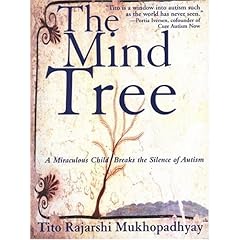When Neil was about six and seven and using some spontaneous speech, he would tell me when he wasn’t comfortable with a situation. “All done rafting,” he said when I took him rafting on a mild part of a local river. “All done doctor,” “All done wash face,” and “All done vacuum” were heard frequently, or just “All done” between hiccupping sobs when something really upset him. It is in this spirit that I attended his IEP meeting today.
I know they mean well, the IEP team. Of course they do. One of them has known and worked with Neil for ten years. But when I tell them the poignant story about Neil doing art therapy in his yearbook, drawing ape faces on all the faces of the kids who had bullied him at that school, and the IEP team tells me that “a lot” of it was Neil’s “perception” that the kids were bullying him, it makes me want to scream. It makes me want to knock a few skulls, okay? And then they suggest that maybe in a couple of months Neil might be able to come back part-time (since I am currently homeschooling him). So I try to diplomatically reply, “Neil really does not want to set foot in this school again. It’ll be all I can do to get him to agree to come to the once-a-week social skills class.”
IEP meetings tend to be the bane of every special needs parent’s existence. Until just a few years ago, I had two kids on IEPs. I thought I was tough. I thought I could do an IEP in my sleep. Seven years ago, my children’s father moved 700 miles away, and so I have attended these IEP meetings alone. And no matter what, no matter how many of these I have attended in the last eleven years, I still feel just as vulnerable. I still feel myself on the verge of tears, trying to hold it together, trying to convey to them No, it WASN’T just Neil’s PERCEPTION that he was being bullied. How could they say that to me? After all that my child has been through? After all the calls they made to me at work, telling me I had to pick him up because of some behavioral issue they couldn’t handle. Because the constant bullying had driven him to such an agitated state that he could not even function. He could not make it through the day. It was not just his “perception.” That much I knew, as I breathed in sharply and felt my heart rate increase and my blood race through my veins at 8:15 this morning. I just looked at the person who said it. And then I looked away.
After that, we discussed his IEP goals, we talked about the social skills class, they asked how he was doing (much better now that he doesn’t perceive himself to be bullied anymore, thank you!), and they provided some math and writing materials that will be helpful for homeschooling. We discussed the benchmark testing he will need to do in the spring. We touched on options for high school next year. We signed the papers. Said Thank you for coming. Went through the motions.
But at the end of the hour, as I walked out to my car, I realized that even though I had been upset by someone’s insensitive remark, my mantra pulled me through. “In an hour this will be over, and Neil’s needs will be met.” This is what I say to myself before every IEP meeting. And somehow, no matter what happens, it works. All done IEP.

 I told him that was a good way to put it.
I told him that was a good way to put it.
 Nigel couldn’t stop laughing at the cartoon. He went back to his room and came out a few minutes later with his yearbook, showing us how he had used a ballpoint pen to make the face of his worst bully into an ape face. He laughed some more and went back to his room, where he proceeded to laugh non-stop for over an hour. Finally, his laughter subsided, and I went to him to suggest that he get some sleep. He proudly showed me his yearbook. Each page of every grade level had several ape faces drawn over the bullies, both boys and girls, who had tormented him. I fought back tears and didn’t want to count how many faces he had drawn on; there were many. I couldn’t bear to think of how horrible it really had been for my son, day after day. I’ve always known that the decision to homeschool him was the right one, but now I had validation. And it sickened and angered me.
Nigel couldn’t stop laughing at the cartoon. He went back to his room and came out a few minutes later with his yearbook, showing us how he had used a ballpoint pen to make the face of his worst bully into an ape face. He laughed some more and went back to his room, where he proceeded to laugh non-stop for over an hour. Finally, his laughter subsided, and I went to him to suggest that he get some sleep. He proudly showed me his yearbook. Each page of every grade level had several ape faces drawn over the bullies, both boys and girls, who had tormented him. I fought back tears and didn’t want to count how many faces he had drawn on; there were many. I couldn’t bear to think of how horrible it really had been for my son, day after day. I’ve always known that the decision to homeschool him was the right one, but now I had validation. And it sickened and angered me.